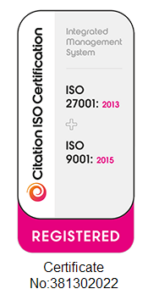Advice From Engagement Experts: Insights That Give Your Meeting Zing
“The only people who see the whole picture are the ones who step outside the frame.” – Salman Rushdie
How much will $5 million of promotion at a major conference buy you? The answer is, it depends.
Last year, we attended a major healthcare conference in San Diego to help gather insights into how effective a large pharmaceutical company’s big brand campaign had been. The company had spent $5 million to get its branding across the city and conference – from buses, to the backs of hotel doors, to hotel keycards, to coffee cups.
To assess the effectiveness of the campaign, I interviewed people at the conference, asking them which companies had been most conspicuous. Most identified the large pharmaceutical company as being everywhere. But when I asked if they remembered anything from the branding exercise, few could recall any messages. These are the kind of insights that companies need to build and adjust their campaigns.
‘Insight‘ is a service Open Audience has been offering to clients in addition to our ‘Engage‘ and ‘Manage‘ services.
The objective is to ensure that clients are getting the most from their meetings and delegates. The point is, when you are having a meeting or organising an event, you don’t want to leave anything to chance.
Using Open Audience Insight means finding out what your delegates might be thinking, where they are in their journey and even whether your audience contains leaders in the field of discussion whose expertise might be valuable to your session. Once you know who is attending and what they hope to get out of your session, you can decide whether to hone your message or leave your agenda as it is.
Audience insights can be useful for gaining expert opinions on the effectiveness of a planned conference. For example, we are working with a market research company that is conducting marketing intelligence for an agency to get feedback from healthcare professionals on a conference programme.
We have reached out to 12 doctors who have been asked to visit the conference online. Each has been given a personalised programme of which sessions to watch and when, which parts of the exhibition hall to enter and which posters to look at.
They then provide their feedback on their event journey and that information is sent back to the agency, which in turns coordinates the market research and competitor intelligence and sends it back to the pharmaceutical client.
To assist with this insights piece, we are building the virtual platform, creating the links and conducting some of the briefings, and we’re helping the agency to run the competitive intelligence. During the conference itself, we will help the client gather further insights by interviewing around 200 customers.
Data insights can also be transformational to a product launch or campaign.
For example, one client with a niche paediatric product received approval for adults and needed to reach out to a different set of prescribers. The company planned to launch its product at a scheduled congress.
First, though, they needed to address two key questions: 1) When do paediatric patients become adults in each market? 2) Which clinicians would be likely to deal with adults in the therapeutic area?
Our job was to find clinicians from five key markets who treat adolescents and adults with the condition. Were these specialists or GPs and did that vary from market to market? We then needed to find out which congresses these clinicians attended.
What we found out was that the congress that the client had planned to attend was not the right venue since it wouldn’t be attended by their target audience. So, they cancelled their initial plans and enrolled in a different congress.
That wasn’t the only change: our research found that the five markets had five different treatment pathways. The insights put the company two rungs up on the ladder. Not only were we able to show them which clinicians to reach out to and which congresses they attended, but also relevant prescribing patterns. As a result, the company ended up changing their go-to-market strategy in five key markets.
Insights like these are crucial to audience engagement, but for your research to be successful you need to know what questions to ask, who to address those questions to and how to quantify, qualify and measure the responses.
These are not the types of questions or approaches that the average marketeer can address, but without them, you are at risk of going down the wrong path, attending the wrong congresses and reaching the wrong audience. Our objective is to make sure you get those important elements right.
Leslie Robertson is the Founder of Open Audience, an audience engagement consultancy that specialises in making life sciences meetings more engaging with more positive, successful outcomes – whether in-person or in the virtual space. The Open Audience team helps to strategise and prepare pre- and post-meeting as well as providing real-time support and guidance during the meeting. Open Audience also offers customisable, multilingual engagement platforms that include interactive polling, surveys, and ideas exchange.

